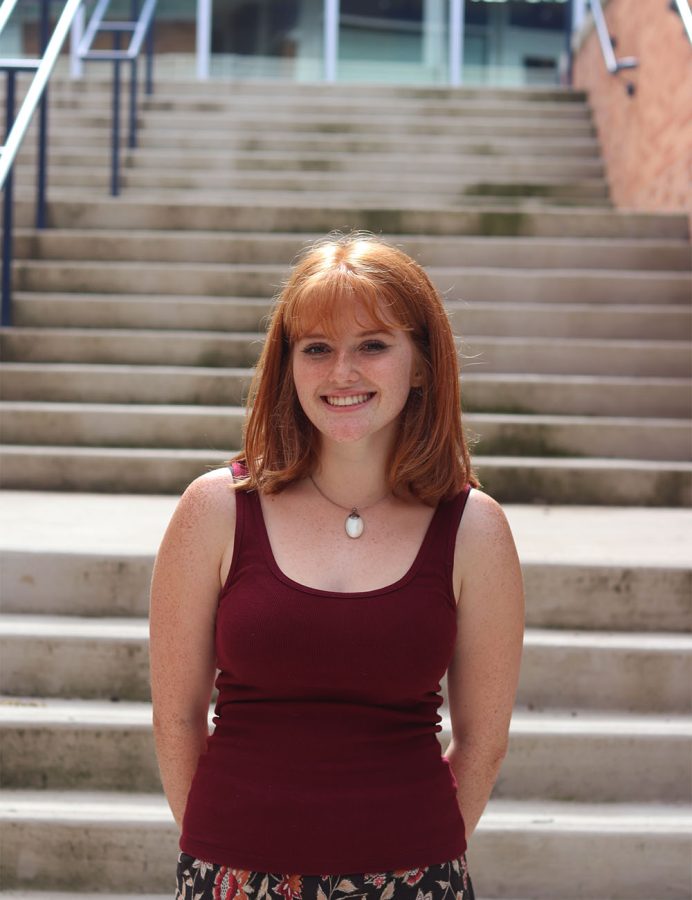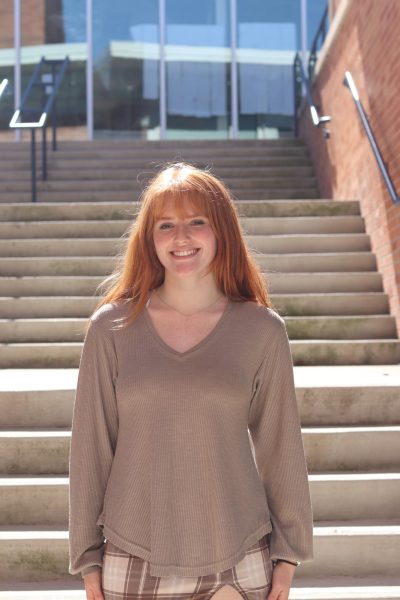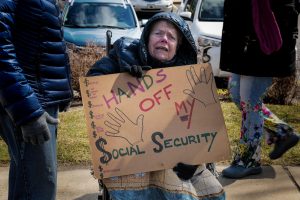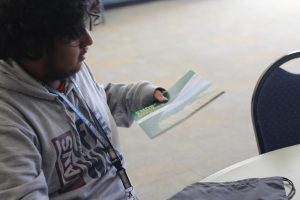A nationwide epidemic: The criminalization of poverty and homelessness
December 2, 2021
Across the United States, legislation is constantly being passed that directly targets people in poverty.
Poverty is when an individual lacks the basic necessities to survive in a society. In the 2020 Census, there were 37.2 million people experiencing some form of poverty.
Those who are experiencing homelessness are some of the most prominent examples of poverty in America. On any given day, there are 580,466 people experiencing homelessness according to a 2020 study done by the U.S. Department of Housing and Urban Development (HUD).
The homeless problem in America is particularly profound due to the consistent and brutal criminalization of those simply trying to survive.
From state to state, laws are made and enforced that criminalize the life sustaining activities that homeless people must perform. Anti-homeless laws criminalize things such as panhandling, camping, standing, sitting, resting, and food sharing.
These laws are often justified under the pretext of “public safety,” but these laws truly don’t do anything to protect the public. There has been no true evidence to support this concept.
Homeless people are already at extreme risk for a multitude of things such as death, starvation, severe mental health issues, and substance abuse and/or addiction. Living on the streets leaves people vulnerable to the elements, so why should we put further strain on an already stressful, mostly involuntary lifestyle?
Not only is the criminalization of homelessness highly unethical, it is also unconstitutional and in violation of United Nations policies.
Robert Martin received a citation in 2009 for a city ordinance which made it illegal to sleep on private property, following a closure of a homeless shelter in Boise, Idaho. He, and a few other of the six individuals who also got a citation, filed a lawsuit against the city of Boise arguing the constitutionality behind the ordinance.
In the 2019 case, Martin vs. City of Boise, relating to the citation that Martin faced, the United States Court of Appeals for the Ninth Circuit ruled that, “a state may not criminalize conduct that is an unavoidable consequence of being homeless.”
According to the Coalition on Human Needs, the “U.N. Human Rights Committee found that the criminalization of homelessness in the U.S. violated the International Covenant on Civil and Political Rights.”
After the American government pushed anti-homeless legislation into the rule books, they have devised cruel punishments for these people already struggling.
The punishments for homelessness include incarceration, fines that they likely cannot pay, and “sweeps” which force them to evacuate their temporary “homes.”
Criminalizing and penalizing homeless people is a national trend that is happening here in Kalamazoo, Michigan. Law enforcement officers recently performed a sweep on a large homeless encampment on Ampersee Avenue.
On Wednesday, October 6, 2021, KDPS arrived at the encampment and detained the homeless people in the park. Over the past two years this encampment had been home to over 160 people or more.
The criminalization and penalizing of homeless people for just existing and living in our environment is furthering America’s harmful views on poverty.
The sole act of criminalizing homeless individuals in America is a specific cruelty. We implement systems that push people further into the dredges of poverty.
According to Human Rights Careers, there are many systems that increase the risk of homelessness on the American public. Stagnant wages are a huge issue, the cost of living increases exponentially while the minimum wage hasn’t. Since 1970, the minimum wage has increased by 370% but The Consumer Price Index increased by over 480%. Low wages, such as these, keep people trapped in poverty.
As well as low wages, poor people in America also face a lack of resources and services that they need such as lack of affordable healthcare.
Healthcare in the U.S. is astronomically expensive. Recently, I was hospitalized for a severe migraine. I received a CT with contrast on my head, as well as bloodwork and pain medication. My hospital bill was over $8 thousand. Luckily, my family is fortunate enough to have insurance, so our out of pocket was only $2 thousand, which is still a significant amount of money.
However, the 2020 U.S. Census showed that 8.6% of people in America do not have any health insurance. Some Americans are one medical emergency away from poverty.
America holds extremely unrealistic standards for its people, whether it be the assumption that they can afford expensive hospital costs or that poverty is the people’s fault, not the systems.
Throughout your life you’ve probably heard of the “American Dream,” making something for yourself from the ground up. That working hard will eventually lead you to success and no trials and tribulations will occur. This rhetoric is repeated over and over and diminishes facts.
The reality isn’t that simple, thousands of factors in place are working against you in America. Poverty isn’t something that only “lazy people” fall into. According to the Urban Institute, 37% of children will experience poverty before the age of eighteen. This poverty isn’t self-inflicted, they’re children.
Extenuating circumstances that are completely out of people’s control can push people into poverty, such as mental illness, being disabled, and other health problems.
Many are trying to simplify poverty and homelessness, a very complex issue, into laziness. They want to fit homeless people into a box that allows them to be dehumanized.
Most people do not choose to be homeless, people do not choose to become impoverished and lack the basic necessities for survival. This concept is not based in logic.
We cannot harass and spit on those below us when we give them no options to “rise” in our society. Once you enter homelessness, it is so incredibly difficult to get out of. How can you get a job if you don’t have a solid address? So much of our society is centered around the assumption that we all are set up with everything we could ever need to exist safely.
By criminalizing homelessness, we are furthering an ableist, classist, and corrupt rhetoric that helps no one.












